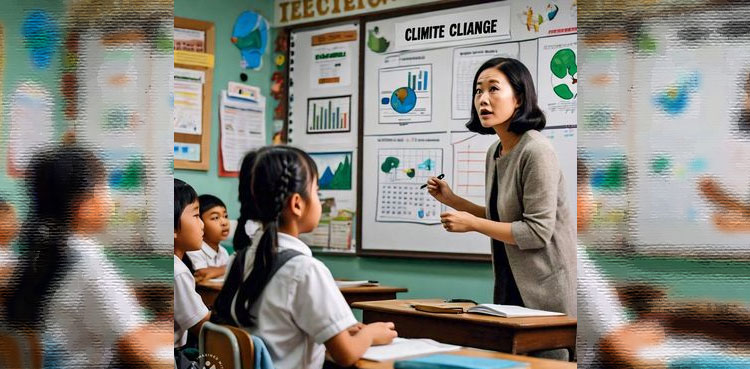
Climate change is one of the most pressing issues of our time, with far-reaching consequences for our planet and its inhabitants. As the next generation of leaders, innovators, and citizens, school children must understand the complexities of climate change and its impact on the environment, human health, and the economy. Educating school children about climate change is crucial for fostering awareness, promoting sustainable practices, and inspiring action.
What is Climate Change?
Climate change refers to the long-term warming of the planet due to an increase in average global temperature. This warming is primarily caused by human activities that release greenhouse gases, such as carbon dioxide and methane, into the atmosphere. Deforestation, burning fossil fuels, and industrial agriculture are significant contributors to greenhouse gas emissions.
Consequences of Climate Change:
– Rising sea levels and coastal erosion
– Extreme weather events (heatwaves, droughts, floods)
– Melting of glaciers and polar ice caps
– Loss of biodiversity and ecosystem disruption
– Negative impacts on human health and food security
Educating School Children about Climate Change:
1. Age-appropriate language and examples
2. Interactive and hands-on activities (experiments, simulations, games)
3. Real-life case studies and local examples
4. Incorporating climate change into existing subjects (science, geography, math)
5. Encouraging critical thinking and problem-solving
6. Inviting guest speakers and experts
7. Organizing eco-friendly initiatives and projects (recycling, conservation)
8. Using visual aids and multimedia resources (videos, documentaries, infographics)
9. Fostering a sense of responsibility and empowerment
10. Encouraging interdisciplinary and collaborative approaches
By educating school children about climate change, we can:
– Inspire a new generation of environmental stewards
– Foster a culture of sustainability and responsibility
– Encourage innovative solutions and climate literacy
– Prepare future leaders to address global challenges
– Develop critical thinking and problem-solving skills
– Encourage community involvement and activism
– Support the development of sustainable technologies and practices
To effectively educate school children about climate change, it is essential to:
– Provide accurate and up-to-date information
– Address climate change denial and misinformation
– Encourage inclusive and diverse perspectives
– Foster a sense of hope and agency
– Support teacher training and resources
– Encourage parental and community involvement
By empowering school children with knowledge and skills, we can create a more sustainable future and mitigate the impacts of climate change. Together, we can inspire a new generation of climate-conscious citizens who will lead the way towards a more resilient and environmentally conscious world.
source https://arynews.tv/climate-change-definition-education/

0 Comments